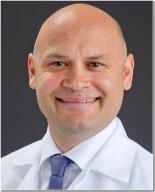Lung cancer is the leading cause of cancer-related deaths in the U.S. and most who are diagnosed with lung cancer do not survive five years.
In some cases, surgery can remove the primary tumor, but investigators from the University of Missouri School of Medicine and MU Health Care have identified a type of cell fusion between cancer cells and white blood cells called a tumor-macrophage fusion (TMF) where the size and number of the TMF cells may predict survival.
Dr. Jussuf Kaifi is an assistant professor of surgery at the MU School of Medicine and MU Health Care. He and his team of researchers studied non-small cell lung cancer (NSCLC) patients over three years and compared them to chronic, long-term smokers without lung cancer and healthy non-smokers without any known cancer.
He joins Dr. Roizen this episode to talk about this research and its findings.
Want better health and nutrition? Now you can get personalized supplement recommendations and custom vitamin packs delivered to your door! Go to PersonaNutrition.com/Roizen and take your free assessment and get 50% off your order today. - sponsor

Bonus
How Your Diet Affects Your Risk for Cancer
Featured Speaker:
Jussuf Kaifi, MD.
Jussuf Kaifi, MD, specializes in the thorax: the area of the body between the neck and the abdomen. He has expertise in malignant and benign conditions relating to the lung, esophagus and chest wall as well as certain membranes found in this region. Kaifi, who has been in practice for more than 15 years, has a broad background in translational cancer research. He has developed innovative detection techniques in patients, including the analysis of liquid biomarkers. These telltale signs of disease can be detected through the minimally invasive technology of liquid biopsy. Additionally, Kaifi published an influential study on the spread of cancer cells to bone marrow and the lymph nodes, and he has contributed significantly to research on genetic alterations that may occur with certain cancers. More recently, he has made inroads into a new technique to isolate tumor cells that have found their way into the bloodstream.
In addition to his research and clinical practice, Kaifi has a record of service in the field. For several years, he served as deputy treasurer of the Association for Academic Surgery. He is also a member of the Cardiothoracic Surgery Network. Dr. Jussuf Kaifi is an assistant professor of surgery and chief of thoracic surgery in the School of Medicine.
![]()
